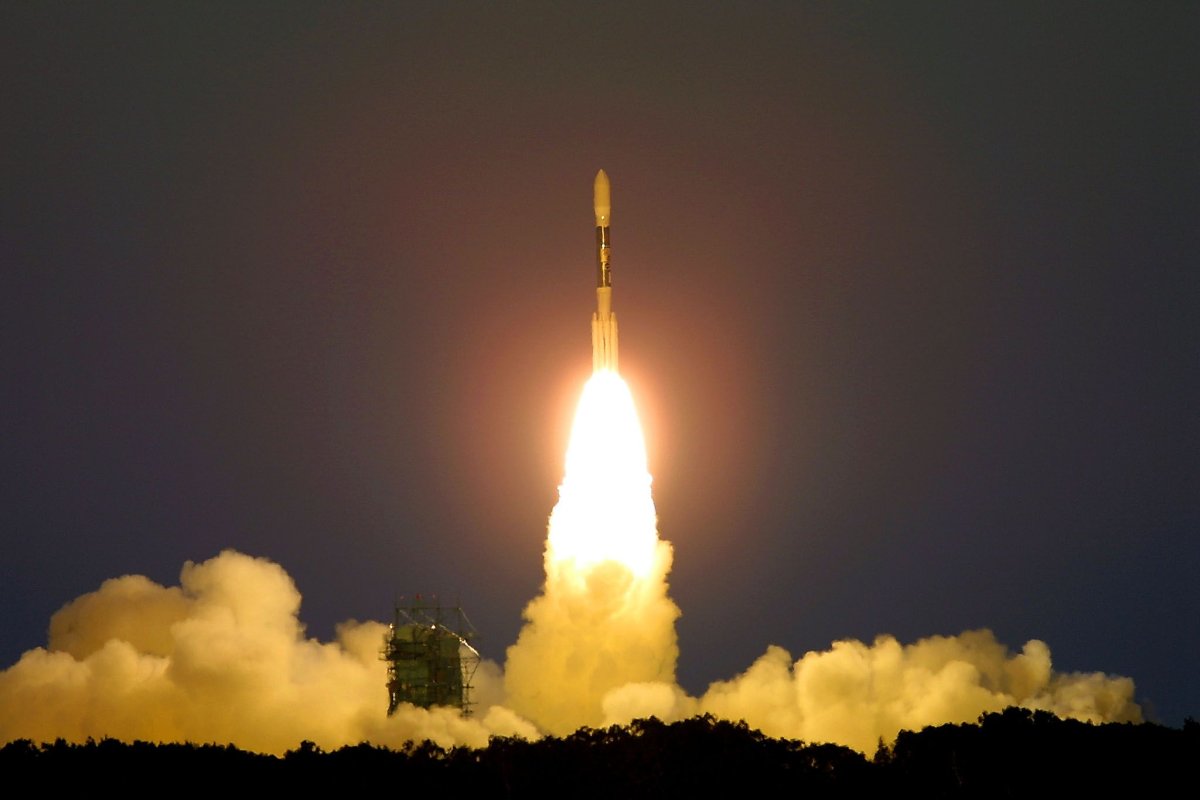Moscow and Beijing have reportedly joined forces to carry out heating experiments above Europe and modify an important layer of the atmosphere for a possible military application, according to Chinese scientists.
Five experiments were conducted in June, and one of them created a physical disturbance over an area as large as 49,000 square miles, or roughly half the size of Britain, The South China Morning Post reported Monday. The heating experiment, which took place 310 miles over the small Russian town of Vasilsursk in Eastern Europe, generated an electric spike that contained 10 times "more negatively charged subatomic particles than surrounding regions," the publication noted.
In a separate experiment at the time, the temperature of thin, ionized gas in high altitude rose up to 212 F due to a particle flow. The electrons were pushed into the sky by an atmospheric heating facility in the Eastern European town, which was created by the former Soviet Union during the Cold War years. After the facility ignited a host of high-power antennas to introduce a considerable amount of microwaves into the high atmosphere—which reached 260 megawatts, the necessary amount of power to light a small city—the Chinese electromagnetic surveillance satellite named Zhangheng-1 gathered data with state-of-the-art sensors, the Post added.
The results were published in the latest edition of China's journal Earth and Planetary Physics, in which the scientists hailed the results as "satisfactory." However, other experts believed that such cooperation is rather unusual because "the technology involved is too sensitive," according to the Post.

The control over the ionosphere has become an ambitious project for some military forces, as it has the capacity to disrupt communication of enemy satellites. The U.S., for instance, was also involved in a multimillion-dollar project called the High-Frequency Active Auroral Research Program, also known as HAARP, located 200 miles north of Anchorage, Alaska, and funded by the U.S. military and the Defense Department in 1993. HAARP was later transferred from the U.S. Air Force to the University of Alaska Fairbanks on August 11, 2015.
The use of such practices over the ionosphere has raised concerns among critics. They argued that these tests could affect the operation of human brains or spur weather changes and natural disasters (even late Venezuelan President Hugo Chávez once said that the U.S. used this technology to cause the 2010 Haiti earthquake) but others dismiss these claims as mere conspiracy theories. Faculty members at the University of Alaska Fairbanks have noted the amount of information that debunks any myths surrounding the experiment.
"It's an exquisite facility. It's the best of its kind in the world, cost about $290 million to build and the university received it for free so we're now trying using it to do basic research into the ionosphere," the university's public relations manager Sue Mitchell told Web Center 11 in August.
While some people may worry about man-made disturbances over our heads, other scientists underscored that the energy released into the ionosphere is not meant to trigger a cataclysmic event across the globe. "Such studies must strictly follow ethical guidelines," Xidian University professor Gong Shuhong told the Post. "Whatever they do, it must not cause harm to the people living on this planet."
The test findings occur at a time when the U.S. is gearing up to create a space force. As both China and Russia have been developing lasers and anti-satellite missiles, the Trump administration announced Monday that it will launch a Space Command this week while the Pentagon completes its Space Force proposal, CNN reported.
Uncommon Knowledge
Newsweek is committed to challenging conventional wisdom and finding connections in the search for common ground.
Newsweek is committed to challenging conventional wisdom and finding connections in the search for common ground.
About the writer
Robert Valencia is deputy world editor for Newsweek. Robert has covered issues related to drug policy, human rights, U.S. presidential ... Read more
To read how Newsweek uses AI as a newsroom tool, Click here.








